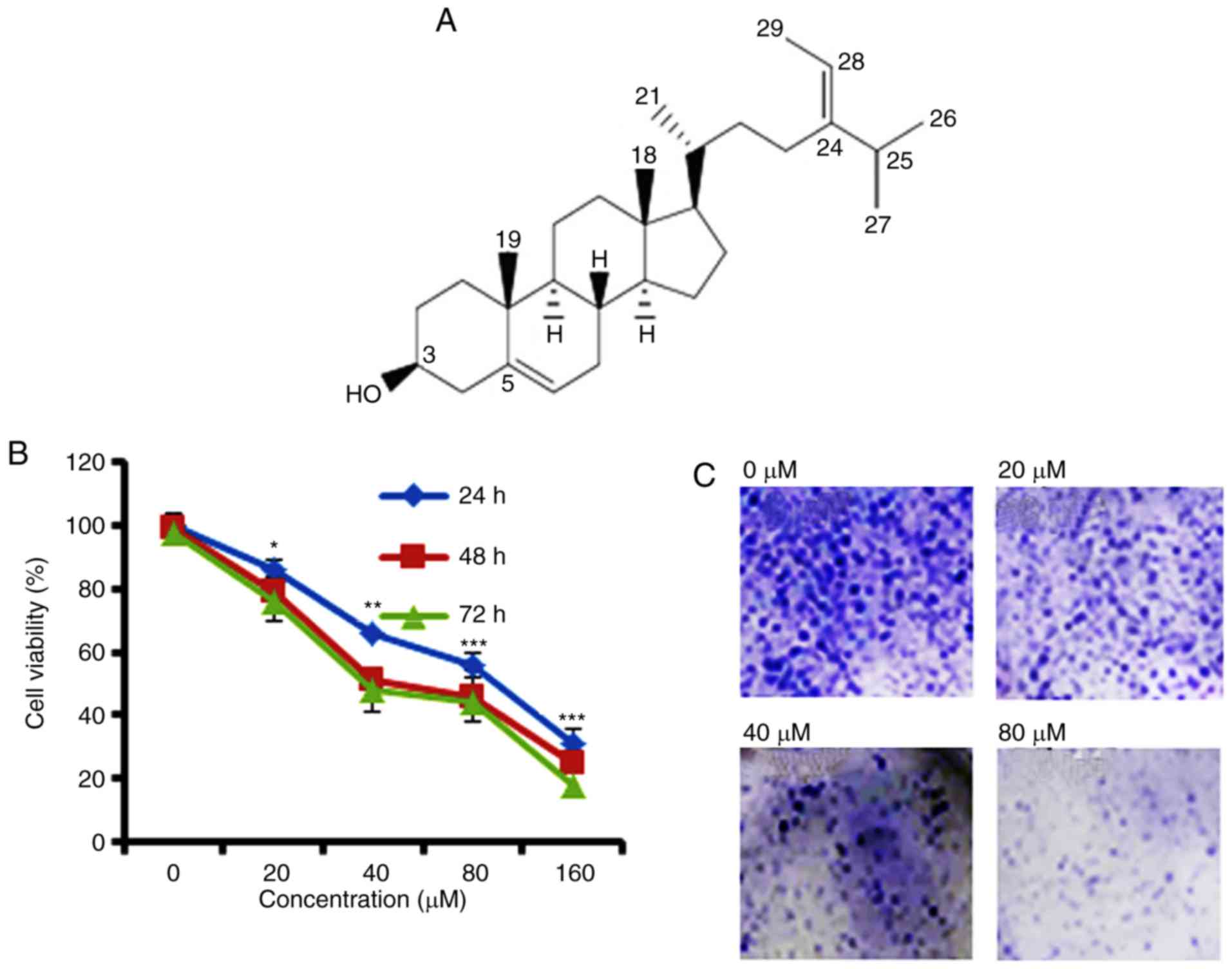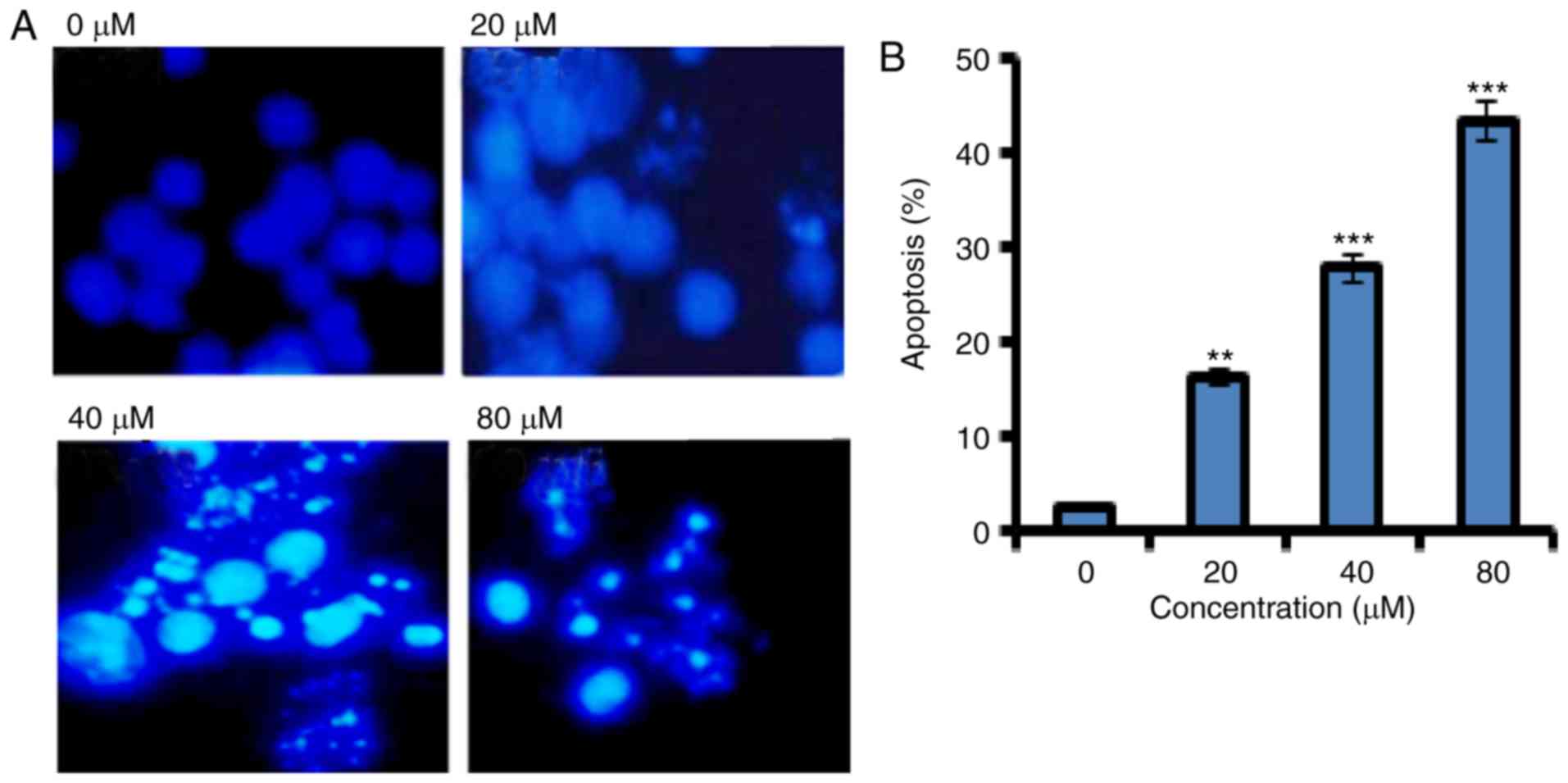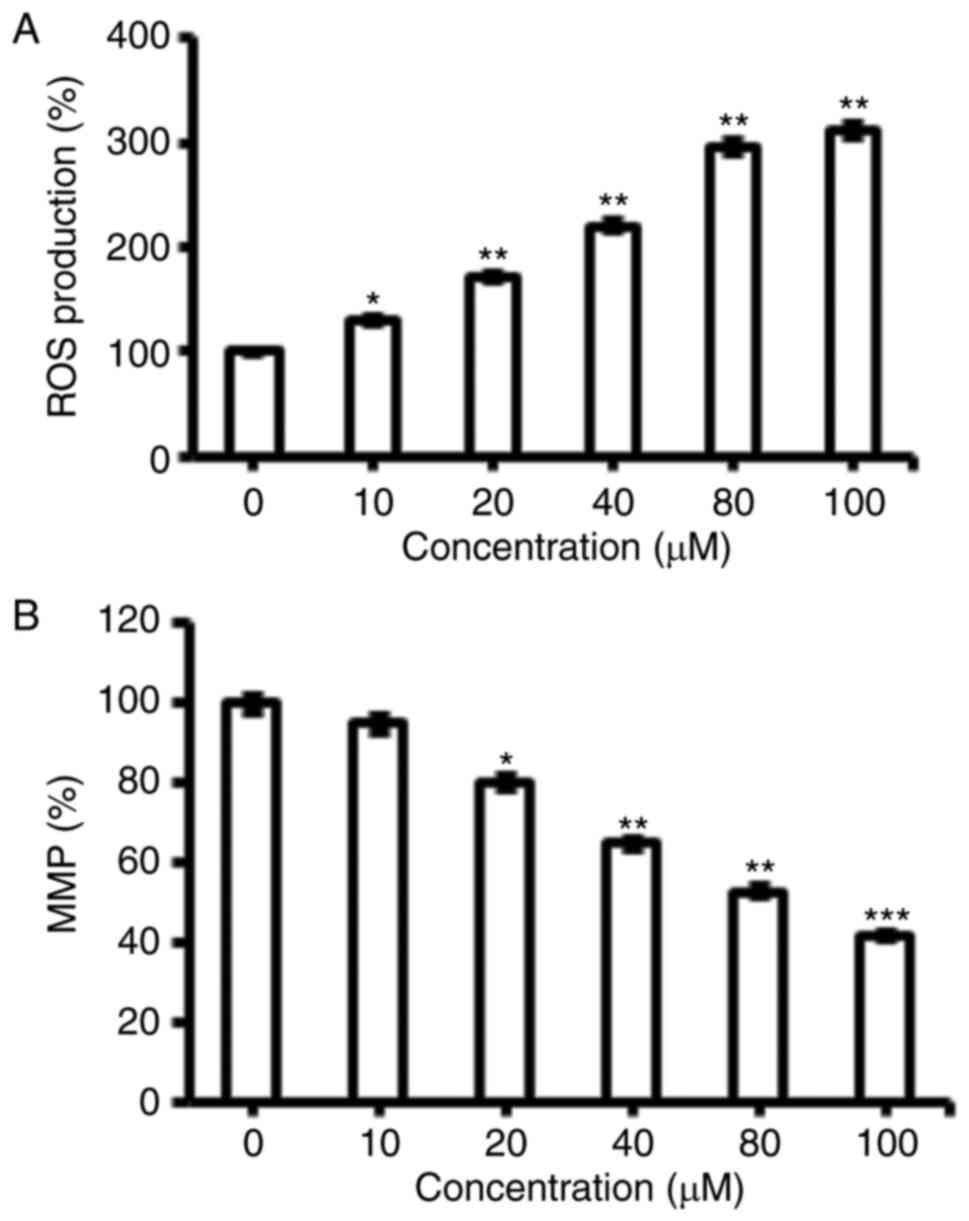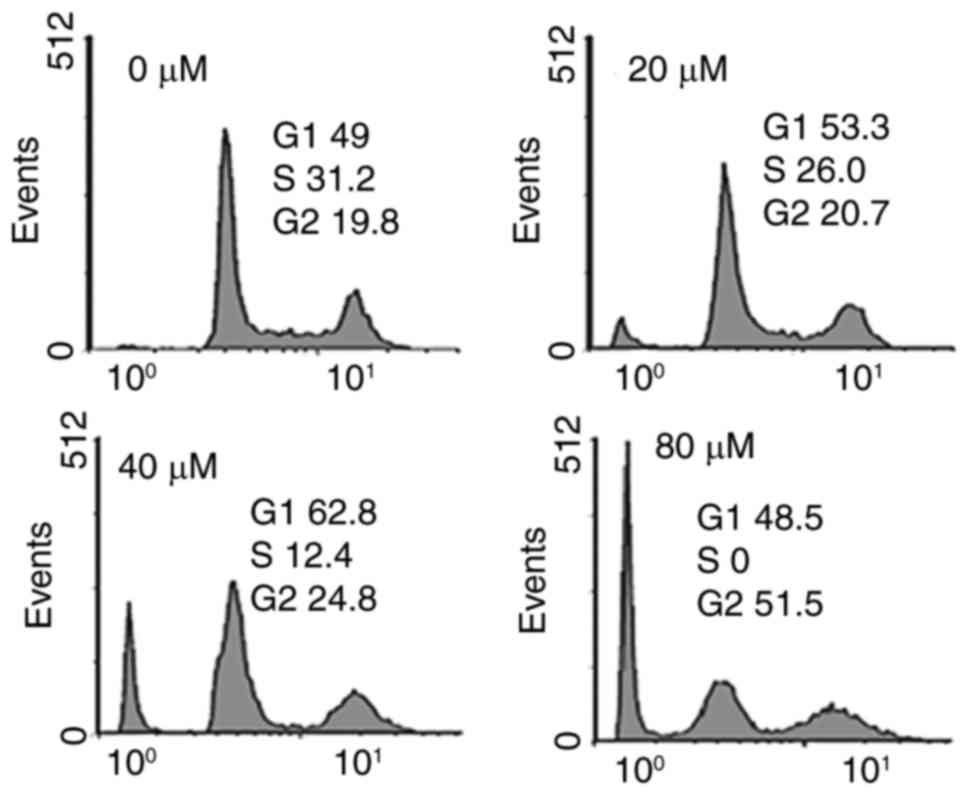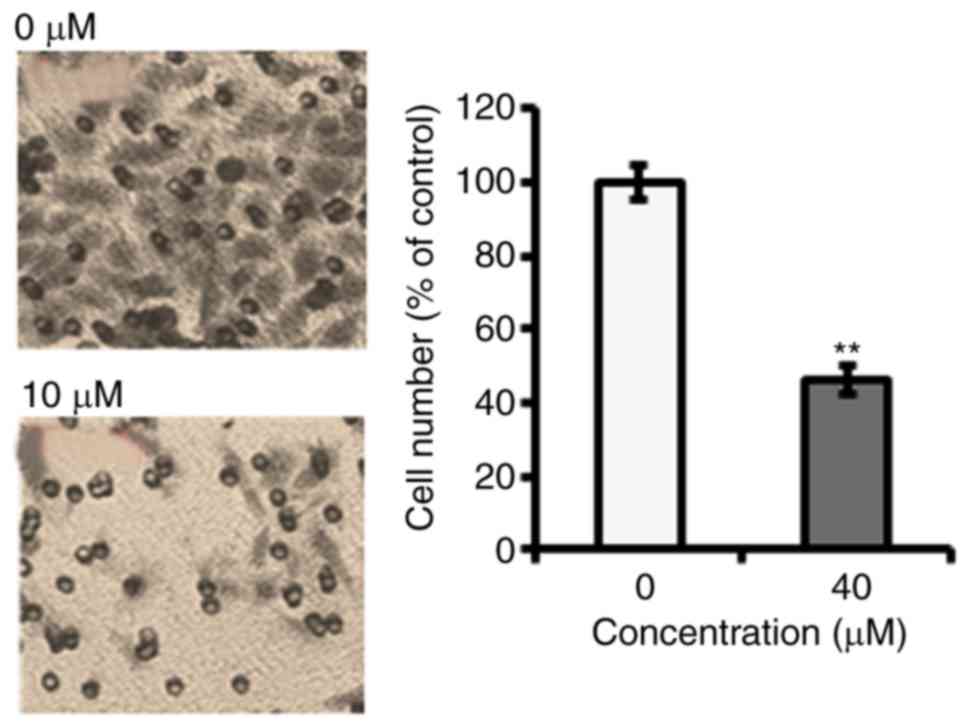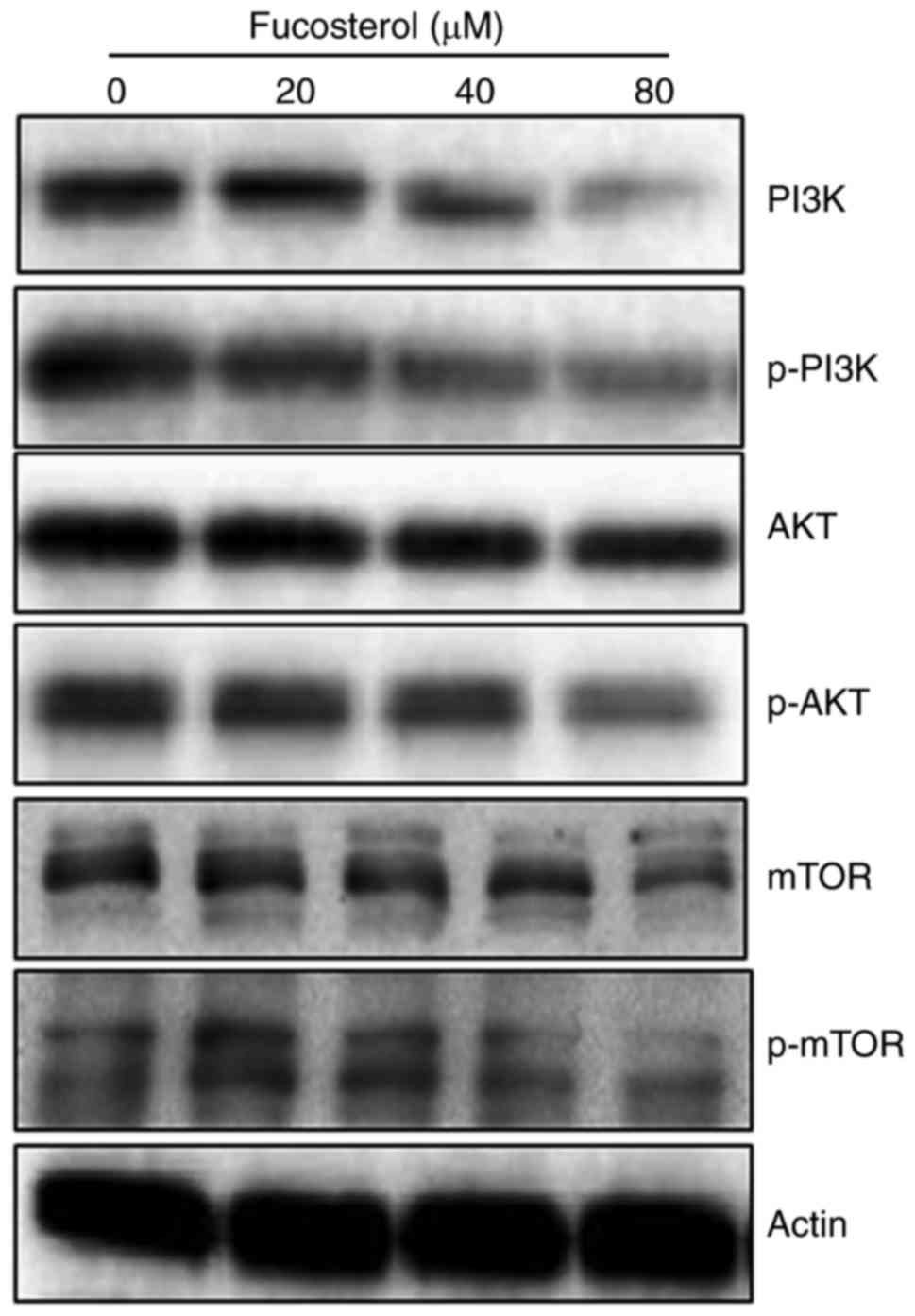Spandidos Publications style
Jiang H, Li J, Chen A, Li Y, Xia M, Guo P, Yao S and Chen S: Fucosterol exhibits selective antitumor anticancer activity against HeLa human cervical cell line by inducing mitochondrial mediated apoptosis, cell cycle migration inhibition and downregulation of m-TOR/PI3K/Akt signalling pathway Retraction in /10.3892/ol.2022.13618. Oncol Lett 15: 3458-3463, 2018.
APA
Jiang, H., Li, J., Chen, A., Li, Y., Xia, M., Guo, P. ... Chen, S. (2018). Fucosterol exhibits selective antitumor anticancer activity against HeLa human cervical cell line by inducing mitochondrial mediated apoptosis, cell cycle migration inhibition and downregulation of m-TOR/PI3K/Akt signalling pathway Retraction in /10.3892/ol.2022.13618. Oncology Letters, 15, 3458-3463. https://doi.org/10.3892/ol.2018.7769
MLA
Jiang, H., Li, J., Chen, A., Li, Y., Xia, M., Guo, P., Yao, S., Chen, S."Fucosterol exhibits selective antitumor anticancer activity against HeLa human cervical cell line by inducing mitochondrial mediated apoptosis, cell cycle migration inhibition and downregulation of m-TOR/PI3K/Akt signalling pathway Retraction in /10.3892/ol.2022.13618". Oncology Letters 15.3 (2018): 3458-3463.
Chicago
Jiang, H., Li, J., Chen, A., Li, Y., Xia, M., Guo, P., Yao, S., Chen, S."Fucosterol exhibits selective antitumor anticancer activity against HeLa human cervical cell line by inducing mitochondrial mediated apoptosis, cell cycle migration inhibition and downregulation of m-TOR/PI3K/Akt signalling pathway Retraction in /10.3892/ol.2022.13618". Oncology Letters 15, no. 3 (2018): 3458-3463. https://doi.org/10.3892/ol.2018.7769















